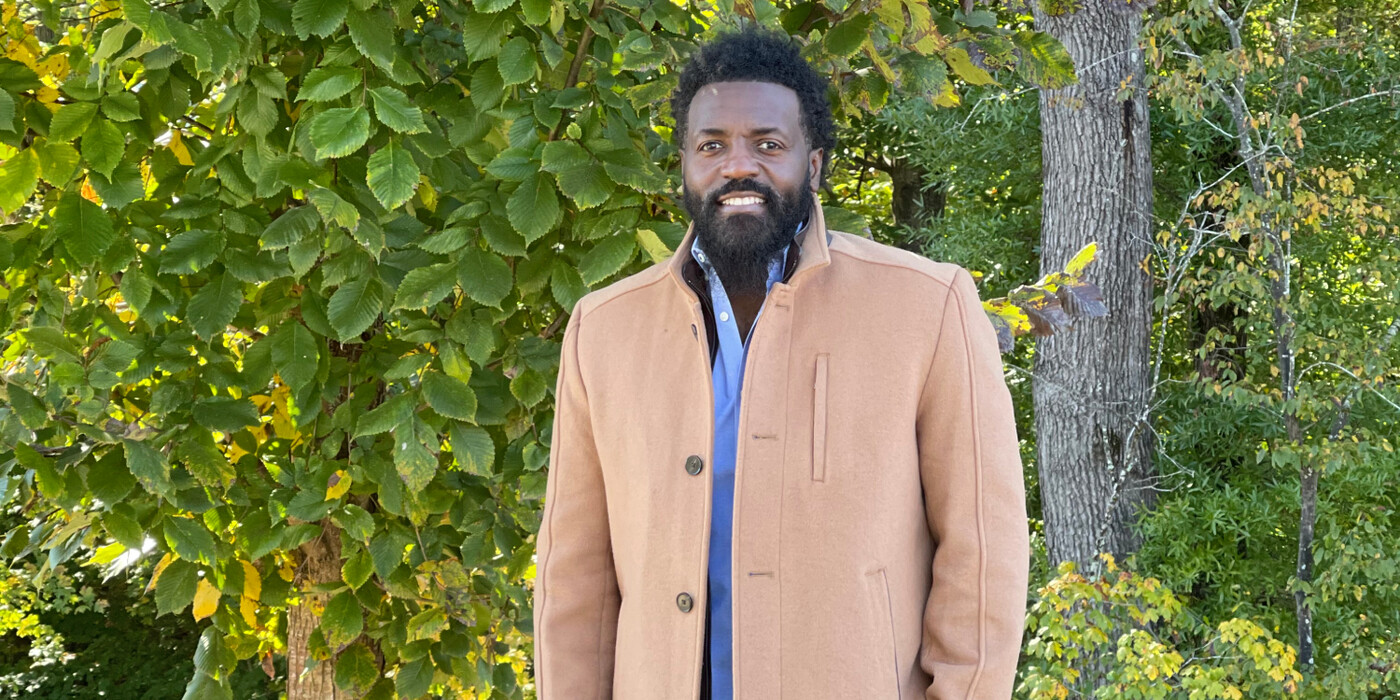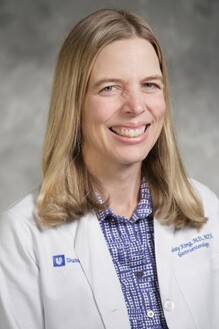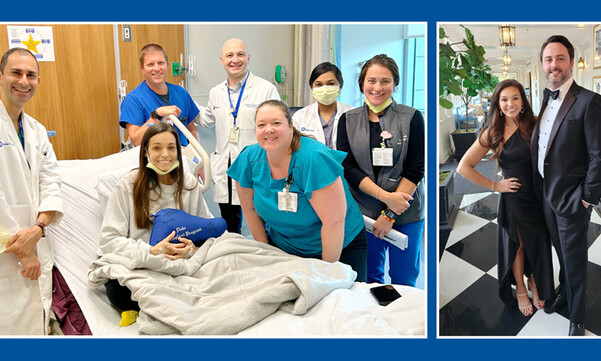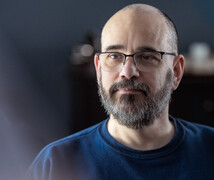Despite being young and active, Stefan Rucker felt sluggish and weak in his early forties. In October 2020, the 16-year veteran police detective was diagnosed with a rare type of cardiac amyloidosis. His doctor sent him to Duke Health, where Rucker received heart and liver transplants. Now 47 and retired from police work, Rucker spends his days caring for his toddler son Kayden. “From the moment I met Dr. Khouri, I could tell he knew exactly what he was talking about,” Rucker said. “He assured me that he would take care of me, and that's exactly what he did.”
A Shocking Diagnosis
Stefan Rucker always felt tired. He couldn’t take the stairs at work anymore, and he was retaining fluid in his legs and abdomen. A doctor close to his home in Charlotte ordered some blood work. A couple hours later, Rucker got a panicked call. “She told me to go to the emergency room immediately,” Rucker said.
Rucker was diagnosed with transthyretin amyloidosis (ATTR) -- a condition caused by a buildup of abnormal proteins. The proteins were being produced in Rucker’s liver and collecting in his heart, causing cardiomyopathy and heart failure and restricting his heart’s ability to pump blood normally. Doctors call this cardiac amyloidosis. Rucker’s condition was caused by an extraordinarily rare gene mutation that he inherited.
Advanced Disease Requires Advanced Care
Rucker’s doctors prescribed medication to slow his disease progression, but because Rucker’s heart was already so damaged, he needed more advanced treatment. His doctor referred him to Duke Health’s Michel G. Khouri, MD, a specialist in cardiac amyloidosis. “It was probably the most advanced case I'd ever seen,” Dr. Khouri recalled. “Cardiac amyloidosis is a disease associated with aging, so for him to present with advanced symptoms in his early forties was unique, and the degree to which his symptoms were advanced was also quite unique.”
Testing showed Rucker needed a heart transplant, and Dr. Khouri also recommended a liver transplant. “If you replace the liver that's producing mutated transthyretin, which can break down into amyloid, you can essentially stop the disease in its tracks,” Dr. Khouri said.
Rucker was shocked by the news, but learning that Duke performs more multi-organ transplants than any center in North Carolina and more than most centers in the country brought him comfort. “Dr. Khouri gave me the statistics on the survival rates and how many procedures are done at Duke every year,” Rucker said. “He made me feel comfortable with the process. After that, I was like, ‘Okay, let's do it.’”
Expecting a Baby and Two Transplants
After a thorough transplant evaluation, Rucker was added to the national transplant waitlist on April 12, 2021. Two weeks later, Rucker’s son Kayden was born. At the beginning of June, Rucker was hospitalized due to his worsening condition. His girlfriend and newborn son moved to Durham to stay close.
In the hospital, Rucker met Richa Agarwal, MD, an advanced heart failure specialist and transplant cardiologist. Dr. Agarwal placed an intra-aortic balloon pump to help Rucker’s heart work more efficiently while he awaited transplant. Dr. Agarwal knew it would help Rucker feel stronger, give him more energy, and allow him to go into transplant in a healthier state. “It took an army of people to assist me, but I was walking those hospital halls every single day,” Rucker said.
Time for Transplant
After more than six weeks in the hospital, Rucker received his new heart and liver in July 2021. Within hours, Rucker was on the move. “They helped me stand up, and I started walking, and I haven't stopped since,” Rucker said. He left the hospital in August feeling like a brand-new man and moved back to Charlotte with his family a month later. “I realized I didn't even know how bad I felt before. It was unbelievable.”
Valuing the Gift of Transplant
Post-transplant, Rucker is living life to its fullest. He retired from the police force and became the primary caregiver for his now two-year-old son. He’s also a DJ with a signed record deal who enjoys riding his two motorcycles.
“He valued the gift of transplantation so much,” Dr. Agarwal said. “Seeing someone like that receive a transplant, better his community, and keep up his passions, I think that just makes him really special.”
Seek Care from Cardiac Amyloidosis Experts
According to Dr. Khouri, people with cardiac amyloidosis often spend years seeing doctors and being misdiagnosed. “Cardiac amyloidosis is a hard disease to treat,” he said. “What sets Duke apart is that what's considered rare in other places is common for us. We're familiar with the subtle red flags that point toward this diagnosis.”
In addition, Duke’s multi-organ transplant program is ideal for people like Rucker. “We're one of the few places around here that can do dual organ transplants like a liver-heart transplant,” Dr. Khouri said. “Mr. Rucker is a great example of where we made a meaningful difference for him and his family, in his quality of life, and in his survival. He’s the kind of patient that makes me excited about what I do.”
Learn More About





